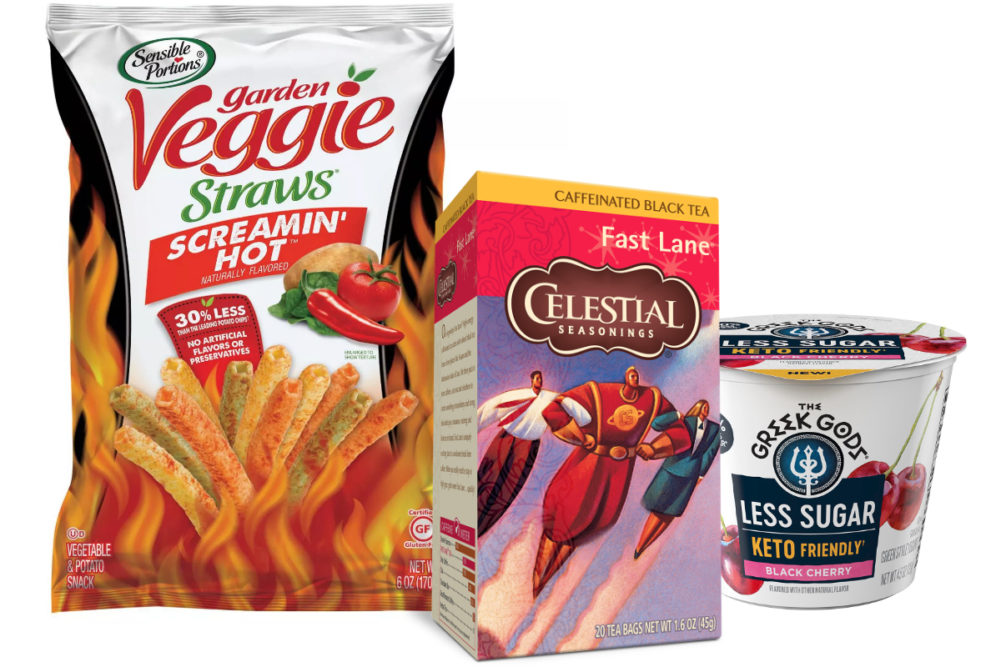LAKE SUCCESS, NY. — The Hain Celestial Group, Inc. is gearing up for a second pantry-stocking surge similar to what happened in March and April. The company has 25% more inventory on hand than it did when the pandemic began.
“We built it on the things that we struggled with during the pandemic, things that are co-manufactured, things with a long supply chain, things that may only have one source of supply,” said Mark L. Schiller, president, director and chief executive officer of Hain Celestial, in a Nov. 16 virtual presentation at the Sanford C Bernstein Operational Decisions Conference.
The company saw some pressures when the country first locked down at the beginning of the year but largely has managed to keep service levels high throughout the pandemic, he added.
“Our ability to supply reliably through this pandemic has won us some points in terms of being somebody retailers can rely on when there's an empty space on the shelf,” he said. “That's part of why we've been a recipient of space in the most recent quarter.”
Hain Celestial picked up market share in tea, snacks and yogurt and delivered double-digit consumption growth in personal care in the first quarter ended Sept. 30, driven by strength in the Sensible Portions, Celestial Seasonings, Greek Gods Yogurt, Alba Botanica and Live Clean brands.
“It's not just that eating occasions have come into the home, but we're getting a disproportionate share of whatever consumption growth there is in our categories, which is a really good sign,” Mr. Schiller said.
Hain Celestial had net income of $485,000 for the first quarter, which compared to a net loss of $107 million in the prior-year period. Adjusted net income was $27.4 million, equal to 27¢ per share on the common stock, compared to $8.4 million, or 8¢ per share, a year ago.
Net sales in the first quarter were $498.6 million, up 3% from $482.1 million in the same period a year ago.
In North America, net sales grew 3% to $280.7 million. Excluding the impact of foreign exchange, divestitures and discontinued brands, adjusted net sales increased 10%.
Internal and external factors give Mr. Schiller confidence Hain Celestial will continue its current trajectory during and after the pandemic. He pointed to a transformation effort beginning in 2018 that saw the company eliminate money-losing stock-keeping units and investments with poor returns.
“That first year, we didn’t really launch any innovation,” Mr. Schiller said during a Nov. 17 presentation at the Jefferies Virtual West Coast Consumer Conference. “It was SKU rationalization and eliminating uneconomic investments so that we could build up the pipeline of innovation.”
The company in January began launching innovation and increasing its marketing spend. New products launched during the pandemic include a highly caffeinated Celestial Seasonings tea, a keto-friendly Greek Gods yogurt and Screamin’ Hot Sensible Portions Veggie Straws. Innovation has performed well during the pandemic despite lower-than-expected distribution levels, Mr. Schiller said.
“For example, Sensible Portions Screamin' Hot Veggie Straws brings in a lot of millennial males and people that normally weren't buying Sensible Portions,” he said. “It's been 90%-plus incremental to the brand, but we only have 25% distribution because many retailers are not resetting the category until March. The good news is, where we have it, the innovation is performing well.”
External trends created by the pandemic, including a greater focus on healthy eating, are driving consumers toward the company’s brands and categories, he said. Consumers also have been less price sensitive during the current crisis, showing less willingness to trade down to private label.
“Unlike other recessions or challenges we’ve faced, this is really about people being afraid of getting sick,” Mr. Schiller said. “Once the pandemic is over, you don't go back to being unhealthy if you've converted to a healthy lifestyle. You're going to continue that journey.”
The company also has benefited from the shift toward e-commerce, delivering more than 50% online sales growth throughout the pandemic.
“People who bought food online for the first time are now buying more than 50% of their groceries online,” he said. “It's not just that they came, but they found it convenient. They found it to have better assortment. They found good service. I think there's some stickiness to those behaviors.”





